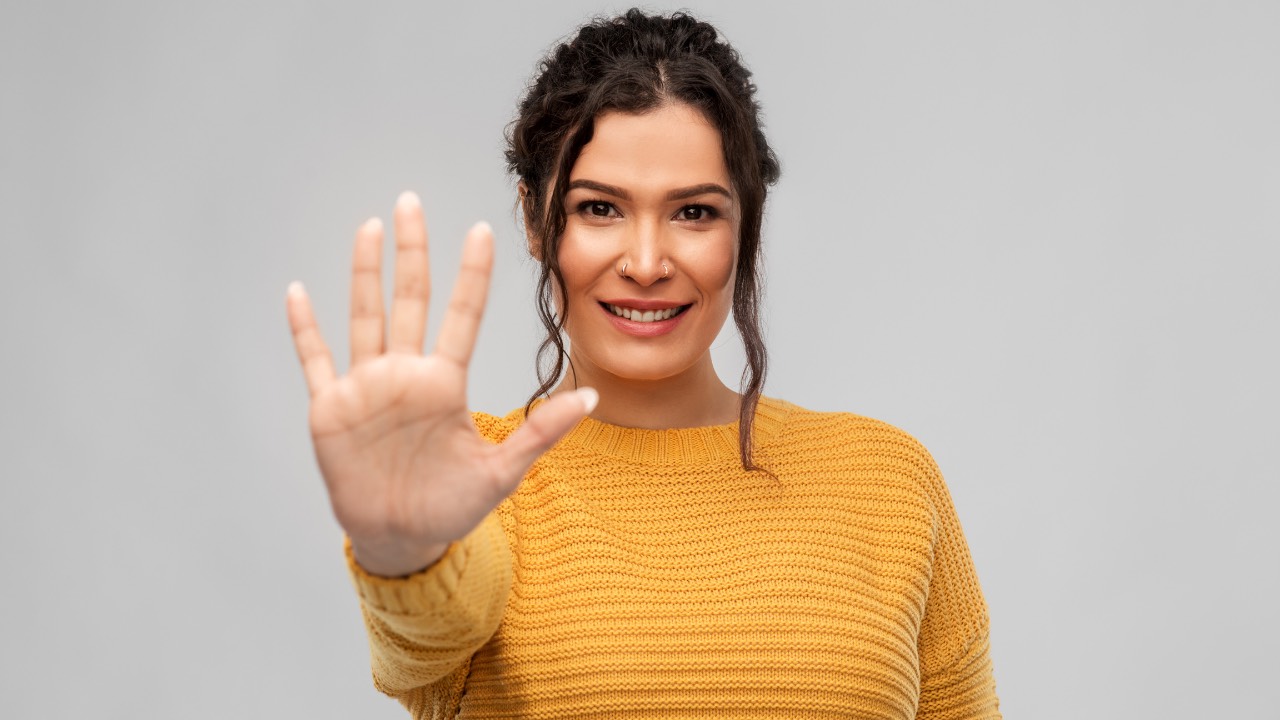Why "Just One Glass" Is The Most Dangerous Lie You Tell Yourself
Nov 18, 2025
"Just one glass" sounds so reasonable, so sophisticated, so controlled. One glass of wine with dinner like the French. One drink at the party to be social. One beer on Friday to unwind. You've promised yourself this moderation hundreds of times, and hundreds of times that one glass has turned into three, that weekend-only rule has crept into Thursday, that special occasion has become any day ending in 'y'.
The exhausting cycle of setting moderation rules and breaking them isn't about willpower, weakness, or lack of discipline. The promise of "just one glass" fails because it's fighting against powerful biological and psychological forces that make moderation harder than either drinking normally or not drinking at all. For many women, especially in midlife, moderation becomes a mental prison that's actually more exhausting than complete abstinence.
By the end of this post, you'll understand why your brain and body conspire against moderation, why the mental energy required to maintain "just one" depletes your willpower for everything else, and why giving yourself permission to stop trying to moderate might be the most liberating decision you ever make.
The Biological Reality: Your Brain on "Just One"
The moment alcohol enters your system, it begins dismantling the very mechanisms you need for moderation. The prefrontal cortex - your brain's decision-making center that said "just one" - starts going offline within minutes. Meanwhile, your dopamine system lights up, demanding more of what just made it feel good. You're essentially asking the part of your brain that alcohol impairs to regulate alcohol. It's like asking someone to guard a candy store while simultaneously feeding them candy that makes them want more candy.
After one drink, your brain experiences a dopamine spike followed by a crash, creating an immediate craving for another spike. This isn't psychological weakness - it's neurochemistry. Your brain, seeking homeostasis, wants to maintain that elevated dopamine level. The second drink isn't a failure of willpower; it's your brain doing exactly what evolution designed it to do: seek more of what triggered a reward response. Fighting this while alcohol is actively in your system requires superhuman resistance to your own biology.
The cruel irony is that the more you drink, the more your tolerance builds, requiring more alcohol to achieve the same dopamine response. But here's what nobody explains: tolerance doesn't mean your brain stops wanting the original amount - it wants the original amount PLUS more to achieve the effect. So "just one glass" becomes fundamentally unsatisfying. Your brain remembers when three glasses felt good and protests against the inadequate single glass, creating a mental struggle that begins the moment you stop at one.
The Mental Load: Why Moderation Is More Exhausting Than Abstinence
The mental mathematics of moderation never stops. Should you drink tonight? How much is appropriate? Did you drink yesterday? Are you drinking tomorrow? Is this a special enough occasion? Are you being too strict? Too lenient? The constant negotiation, planning, tracking, and self-monitoring creates decision fatigue before you even take a sip. You're spending precious mental energy on alcohol management that could be directed toward literally anything else in your life.
The rules you create for moderation become increasingly complex and increasingly breakable. Weekends only becomes weekends plus Thursdays. Two drinks maximum becomes two big pours that are really three drinks. Special occasions expand to include bad days, good days, and days that end in 'y'. Each rule modification requires justification, creating an exhausting internal dialogue that never resolves. You become your own prosecutor, defense attorney, and judge in a trial that happens every single evening.
Women who've successfully stopped drinking entirely often report that abstinence is mentally easier than moderation. With abstinence, there's one decision: I don't drink. With moderation, there are thousands of decisions, negotiations, and judgments. The mental freedom that comes from simply removing the option eliminates the exhausting internal debate. The energy you've been spending on alcohol mathematics becomes available for actual life.
The Midlife Factor: Why Moderation Gets Harder With Age
In midlife, several factors converge to make moderation particularly challenging. Your liver, after decades of processing alcohol, doesn't metabolize it as efficiently. One glass affects you more than it did at 30, but your tolerance memory remains calibrated to younger you. Your body processes one glass like it's two, but your brain still wants the three it used to take to relax. This mismatch creates a biological frustration that makes stopping at one feel impossibly unsatisfying.
Hormonal fluctuations during perimenopause and menopause affect how your brain responds to alcohol. Estrogen influences dopamine and serotonin - the same neurotransmitters alcohol manipulates. As estrogen fluctuates and declines, your brain becomes more sensitive to alcohol's effects and more susceptible to its addictive patterns. The "just one glass" that might have been manageable in your thirties becomes neurochemically impossible in your forties and fifties.
The accumulated stress of midlife - aging parents, teenage children, career pressures, health concerns - creates a perfect storm for moderation failure. You need the stress relief more desperately, making that one glass feel insufficient for the magnitude of what you're managing. The gap between what one glass provides and what you need it to provide becomes a chasm that demands more alcohol to bridge. Moderation requires you to stop precisely when alcohol starts working, which feels cruel when you need relief most.
The Social Sabotage: How "Just One" Becomes Three in Public
Social situations make moderation exponentially harder. After one drink, your social anxiety decreases, your inhibitions lower, and suddenly having another seems not just reasonable but necessary to maintain this comfortable state. The voice that said "just one" is now quieter than the voice saying "you're having fun, don't stop now." Add social pressure, rounds of drinks, and the celebration atmosphere, and moderation becomes nearly impossible.
The social contract around drinking assumes progression, not moderation. Toasts lead to refills. Dinner drinks lead to dessert drinks. Happy hour implies multiple hours and multiple drinks. Saying "just one" in social settings requires you to repeatedly resist both internal desires and external pressures while alcohol is simultaneously weakening your resistance. You're playing a rigged game where the rules change after your first move.
Even worse, successful moderation in social settings often feels like deprivation rather than accomplishment. You watch others continue drinking while you nurse your single glass or switch to water. Instead of feeling proud of your restraint, you feel excluded from the escalating celebration. This perceived deprivation makes you more likely to overcompensate next time, promising yourself you've "earned" extra drinks for your previous moderation. The cycle continues.
The Moderation Trap: Why Failing Feels Worse Than Never Trying
Every failed moderation attempt adds to a mounting pile of evidence that you "can't control yourself," "lack discipline," or "have a problem." This shame accumulates, making each subsequent attempt feel more loaded with significance. The stakes get higher - this time you really need to prove you can moderate - which creates pressure that virtually guarantees failure. You're not just trying to have one drink; you're trying to prove something about your character.
The moderation trap keeps you in a perpetual state of trying and failing rather than accepting what the evidence clearly shows: moderation doesn't work for you. Not because you're weak or broken, but because you're human with a human brain responding normally to an addictive substance. The energy you spend trying to moderate - and recovering from failed attempts - keeps you stuck in an exhausting cycle that prevents you from exploring what life might be like without alcohol entirely.
Women stay trapped in moderation attempts for years, even decades, because admitting moderation doesn't work feels like admitting defeat. But what if it's not defeat? What if it's recognition that you're playing an unwinnable game? What if the freedom you're seeking isn't found in perfect moderation but in releasing yourself from the moderation expectation entirely?
"Just one glass" might be the most exhausting lie you tell yourself - not because you're lying intentionally, but because you're fighting biology, psychology, and social conditioning that make one glass fundamentally unsatisfying for many people. The mental energy required to moderate successfully could power a small city, yet you're expected to sustain it nightly while managing everything else midlife demands.
The truth is that moderation works for some people and doesn't work for others, and neither outcome reflects character or willpower. It reflects your unique neurobiology, your history with alcohol, your current life stressors, and your individual response patterns. Recognizing that moderation doesn't work for you isn't failure - it's data that points you toward what might actually work: complete freedom from the exhausting moderation mathematics.
Understanding your specific relationship with moderation starts with understanding your personality type and natural patterns. Some personalities find rules helpful; others find them triggering. Some thrive with flexibility; others need clear boundaries.
Ready to discover who you are when you show up fully as you? Take my "What's Your Empowered Alcohol-Free Personality?" quiz to uncover whether you're a Mindful Maven, a Resilient Rebel, a Connected Caregiver, or a Visionary Explorer. Understanding your type reveals why moderation has been so hard and what approach actually aligns with your personality.
CLICK HERE TO TAKE THE FREE QUIZ




